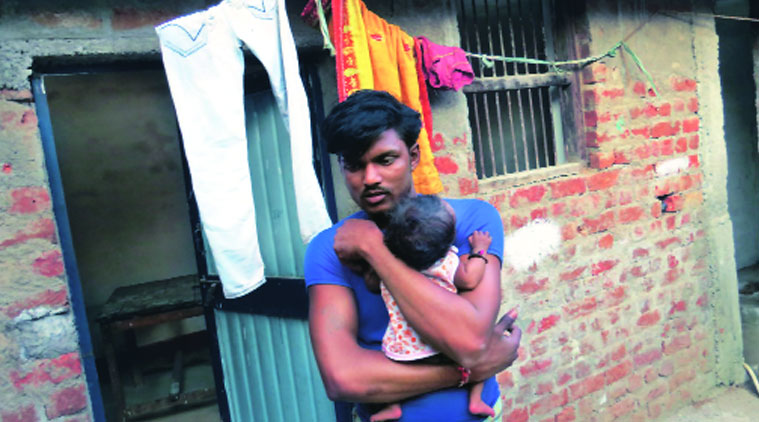Stay updated with the latest - Click here to follow us on Instagram
Many women of protected tribe sterilised, they got no cash, ‘only 5 eggs, half kg dal’
Two other women, Lamiya Bai and Budhwaria Bai, could not remember when they had undergone the operation.
 The Baiga tribe is among the most primitive in central India, confined to just a few forested hamlets in the border districts of Madhya Pradesh and Chhattisgarh.
The Baiga tribe is among the most primitive in central India, confined to just a few forested hamlets in the border districts of Madhya Pradesh and Chhattisgarh.
When Chaiti Bai, a member of the protected Baiga tribe, died earlier this week following a laparoscopic tubectomy in Bilaspur, the Chhattisgarh government termed it as an isolated incident. However, despite the government prohibiting the sterilisation of people belonging to this tribe, many Baiga women have been sterilised in the interior villages of Bilaspur over the years.
Admitting this, Pendra SDM O P Verma said, “We have received information that Baigas were sterilised. We will inform senior officers about the cases.” Verma said a Baiga man or woman has to seek the permission of senior officers to undergo sterilisation.
The Baiga tribe is among the most primitive in central India, confined to just a few forested hamlets in the border districts of Madhya Pradesh and Chhattisgarh. Although the government has spent several crores on schemes for their welfare, they continue to be among the most deprived communities.
While the administrative machinery rarely reaches these villages, health workers arrive to herd the Baiga women to the sterilisation camps, not sparing even those who are grandmothers. The women don’t know that they have been notified as a protected tribe and their sterilisation is prohibited. All of them claimed that they had not received any cash incentive for undergoing the operation, as mandated by the government.
On Saturday, in Chaiti Bai’s village of Dhanauli, over 120 kilometres from Bilaspur, many women from the nearby hamlets assembled to pray for her. Most of them had been sterilised. “They took me for the operation some years ago. Koi baat hai kya? (Is there an issue?)” said Chaiti’s aunt, Rahmati Bai, a grandmother.
Two other women, Lamiya Bai and Budhwaria Bai, could not remember when they had undergone the operation.
Another woman, Sampatiya Bai, in her forties, is the mother of a married daughter and a son in his twenties. She last gave birth over 20 years ago. Yet, she was taken to the sterilisation camp last year. “Money? They only gave me five eggs and half a kilogram of dal. That’s all,” she said. Asked why she went for the sterilisation, she replied, “What can I say? They asked me to go, so I went.”
The elected panch of Dhanuli village, Samariya Bai, in her late thirties, has also been sterilised. A mother of three children, she was operated upon a few years back. She also did not get any money. “Kuch nahi mila. Thagay gaye (I didn’t get anything, I was duped),” she said. “Many of us undergo this operation here. You will find many such women in our villages,” she added.
Most of the women belong to the poorest of the poor Antyodaya families and have little means of survival except subsistence agriculture or their work as daily labourers.
Over 30 kms away is Kevachi, another Baiga village. Premvati, 40, who did the tubectomy about seven-eight years ago, said over 20 Baiga women from her village had the surgery.
“It’s only after Chaiti’s death that we learnt that the sterilisation of Baiga women is prohibited,” said Bahuran Singh Utti, a Gond tribal and a school teacher in a neighbouring village.







